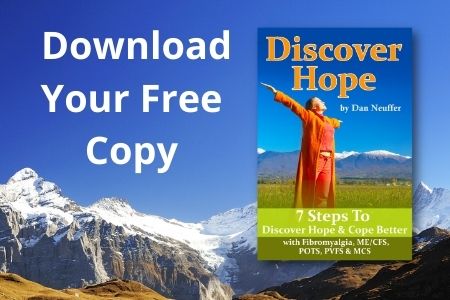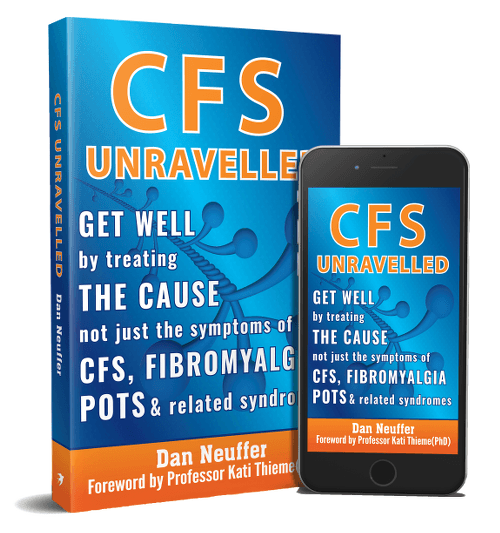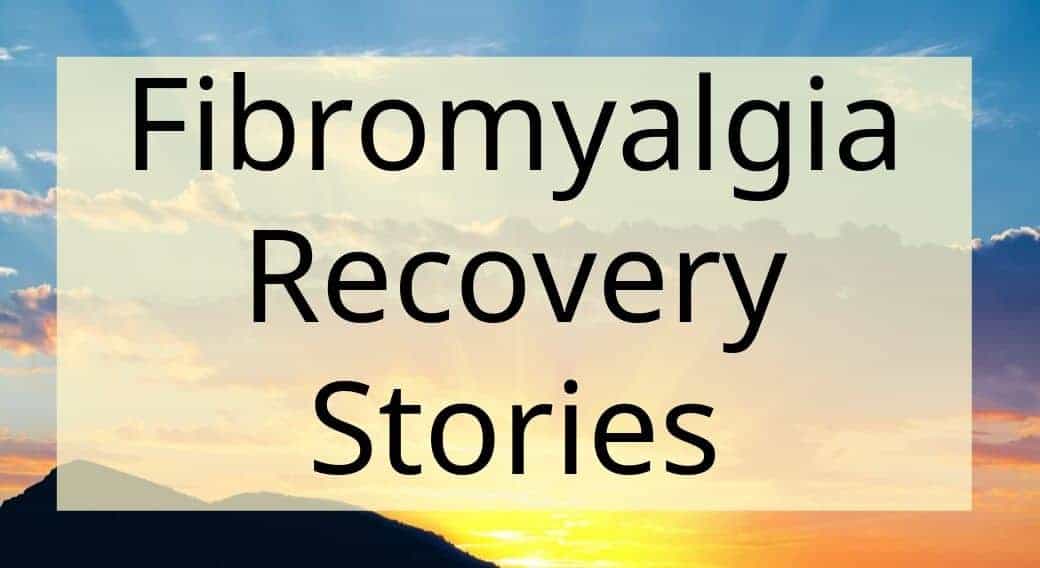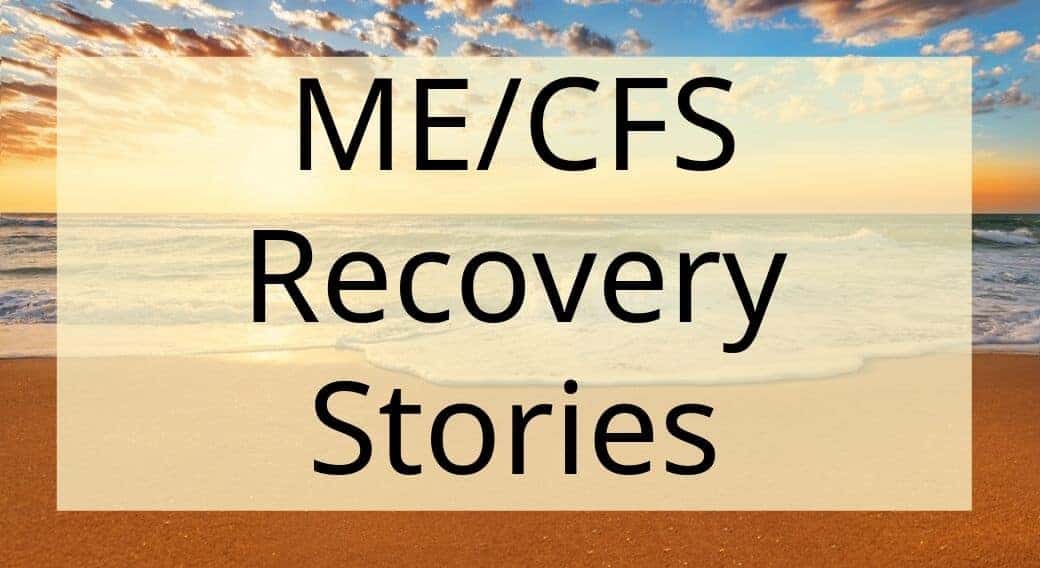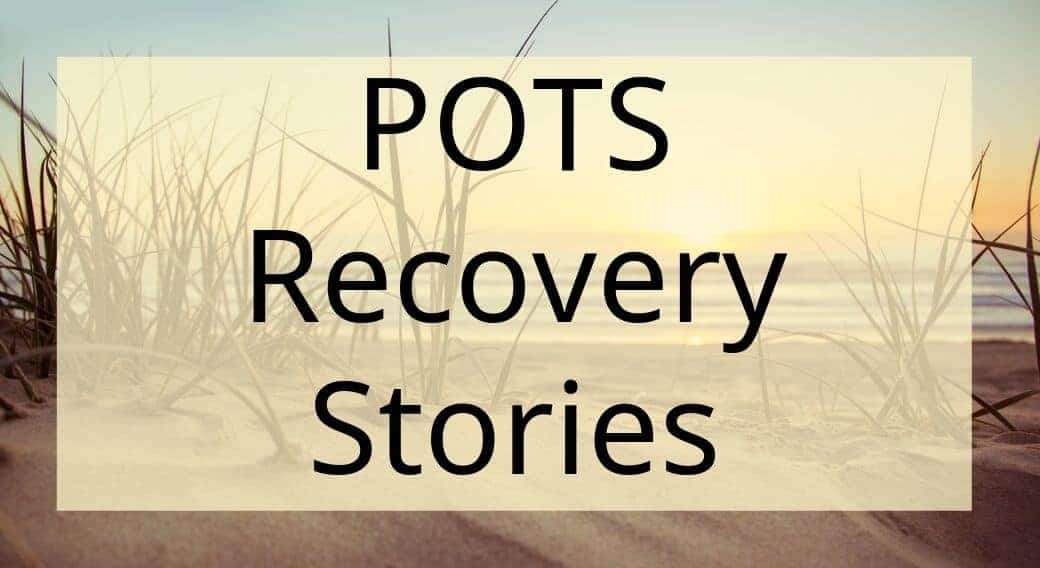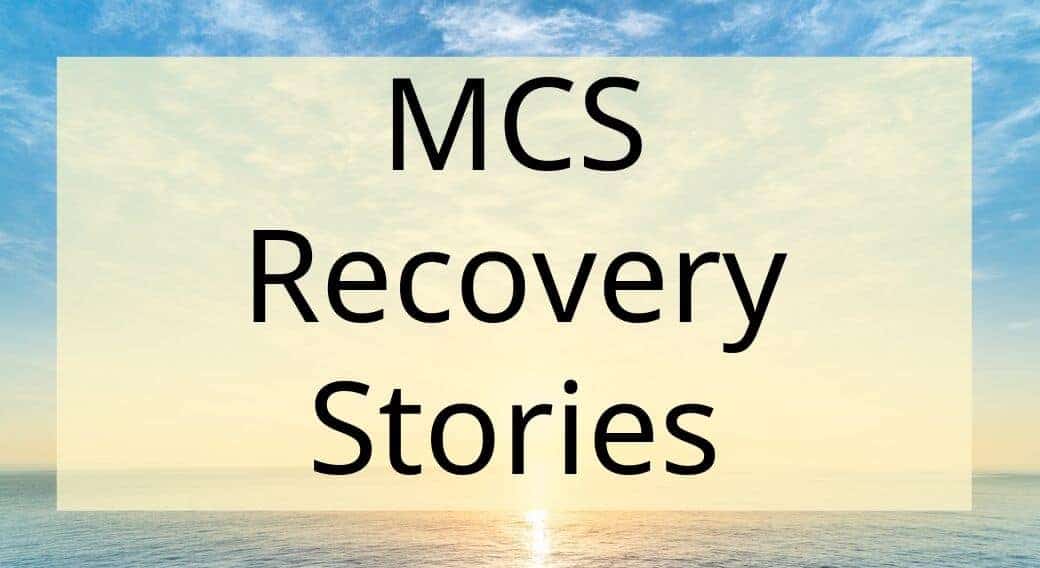Show Notes
Are you up late, desperate for answers about your chronic illness? You’re not alone. In this insightful episode, Dan dives into the common struggle of searching for solutions in the middle of the night, feeling hopeless and desperate for relief from symptoms of ME/CFS, Fibromyalgia, and POTS.
Dan knows this journey all too well. After years of endless searching and countless conversations with others on similar paths, he shares the mixed blessing of information. While knowledge can provide validation, reduce fear, and help with self-advocacy, it can also overwhelm and mislead.
He explains the four major benefits of seeking information: validation, community support, proper diagnosis, and fear reduction. But he doesn't shy away from the dark side—overwhelming volumes of data, the challenge of discerning credible sources, the risk of confirmation bias, and the endless rabbit holes of information that can exacerbate anxiety and stress.
Dan emphasizes the importance of a balanced approach. He highlights the pitfalls of decision fatigue, misallocated resources, and the stress of endless searching, urging the need for a comprehensive health strategy. He also shares his insights on the value of understanding the big picture rather than getting lost in details.
Dan’s message is clear: while information can be a powerful tool in managing chronic illness, it must be approached mindfully to avoid the traps that can hinder recovery.
Timestamps
| Introduction | 0:00:00 |
| 4 Benefits of Researching Treatments? | 0:01:59 |
| 4 Challenges around Researching Treatments | 0:04:25 |
| 4 Problems arising from Researching Treatments | 0:07:58 |
| Conclusions about Researching Treatments for ME/CFS/PVFS/FMS/POTS/MCS | 0:10:37 |
Links
Here is a link to the ANS REWIRE program.
Transcript
Does this look familiar? It's the middle of the night. You can't sleep. You feel terrible. You feel hopeless. You feel desperate. How can you fix this? How can you get rid of all your symptoms?
So you jump on a computer and you start to search. What are they saying? What worked for them? What's the missing link? What treatment will fix you?
Oh boy. I spent years like that. And in the last decade, I've seen countless people go through the same journey. And yes, sometimes they have that aha moment. Sometimes they find their breakthrough. Like for example, when people rekindle their hope, when they find some recovery interviews and see how others have recovered. But often this search is not just unhelpful but actually detrimental.
Now, this might be a bit of a surprise for you to hear from me, given that I have dedicated myself to educating patients and healthcare professionals about recovery from this group of illnesses for over a decade now. And if you have listened to recovery interviews, you will have heard people say how finally gaining that knowledge is what allowed them to recover. So of course, knowledge is important. Knowledge can be key to allow us to move forward effectively, but it can also hold us back.
So first, I'm going to give you four benefits here of seeking information. Then we're going to discuss four challenges with information. And finally, four opportunities, problems with seeking information. Okay, let's get into it.
Benefit number one: validation. Seriously, there, there's still so much gaslighting. People never seem to believe that the illness is real or they suggest it's a mental illness. So seeing evidence that it is in fact a real physical illness is really helpful for many of us. Although, if you reflect, you probably already knew that in your heart. Now, of course, the illness is real. How could it not be real, right?
Number two: you're not alone. When you connect with forums and patient groups, you'll find countless people with the same experience as you. For many of us, there's a real comfort in knowing that.
Number three: getting diagnosed. Now, obviously, you should never self-diagnose. All your symptoms should always be investigated by your doctor. In an ideal scenario, we just go to the doctor and we get an appropriate diagnosis after such investigations. But often that doesn't happen. So getting diagnosed is important not just to rule out other illnesses, but also to get you focused on what needs to be done for recovery. Unfortunately, I have seen people take years, even decades, to get diagnosed. Getting some knowledge can allow you to advocate for yourself more effectively and move from receiving shrugs to receiving an appropriate diagnosis sooner after all of the investigations are completed.
Number four: reduce fear. Understanding more about what's going on can tremendously reduce fear. When we're faced with a large list of mystery symptoms, that's a scary and stressful experience that's not only making your daily life much worse but frankly is quite unhelpful for your recovery. Many people find that understanding what is going on in their body and why they're experiencing the symptoms is a huge sigh of relief.
So, there you have it. So there are four really sound reasons to gain knowledge and to seek information. But it seems that for every story I hear of someone being rescued by gaining information, I hear about someone being shackled by it.
So, let's start by looking at some of the challenges around the seeking of information.
Challenge number one: overwhelming volume of information. Okay, we're in the information age now, and it provides an abundance of health-related information ranging from professional advice to anecdotal evidence. And whilst having access to a wide range of data can be beneficial, it often leads to an overwhelming volume of potential actions and treatments and products. And it makes it really hard for an individual to know where to start or what to focus on. Now, what is actually important as opposed to what is simply noise?
Challenge number two: assessing the quality and bias of information. The credibility and bias of information sources present a significant challenge. There are diverse sources, such as from government departments, different types of healthcare professionals with different training and different types of treatments, as well as legacy and social media sources. And each source may have their own bias or conflict of interest influenced by commercial interests or other agendas. Now this situation necessitates a real critical and discerning approach to evaluate the credibility of information, recognizing that even reputable sources may have underlying biases or conflicts of interest and are not necessarily based on up-to-date science.
Challenge number three: risk of confirmation bias. You know, there's a risk of becoming overly attached to certain theories or pieces of information leading to confirmation bias. This bias can cause individuals to ignore alternative or complementary information, potentially missing out on critical aspects of health management or recovery. You know, it's really important to remain open to various perspectives and evidence to avoid this tunnel vision that could hinder your personal progress.
Challenge number four: the pursuit of health information can feel like navigating through endless rabbit holes with each query leading to more questions rather than concrete answers. This endless search can create anxiety, stress, and uncertainty. Whenever you gather enough information, should entirely different avenues be explored. Now recognizing when to pause and consolidate your existing knowledge is crucial to avoid being caught in a cycle of never-ending searching that may not yield any additional value.
So these four challenges, they can lead to some very real problems that in my experience actually hinder people's ability to progress. Realizing these and managing them can help ensure that you get the benefit of knowledge without being held back by the process of getting the knowledge.
So here are actually four problems that these challenges that I mentioned can lead to.
Number one: decision fatigue and paralysis. The endless options and recommendations that can really lead to decision fatigue, where you can feel so overwhelmed by the choices that you feel afraid of making the wrong decision. This can result in paralysis by analysis and it can cause you to delay or hinder effective health management or treatment decisions.
Number two: misallocation of time and resources. Look, continuous information seeking can lead to a misallocation of time and resources with individuals chasing new, often unproven treatments or products instead of focusing on the very strategies that they already know are helping them follow the evidence, right? But because progress is often slow, well, we look for faster breakthrough strategy.
Number three: anxiety and uncertainty. The quest for exhaustive knowledge can exacerbate feelings of anxiety and uncertainty. The fear of missing out on a critical piece of information or the right treatment can lead individuals to a never-ending cycle of searching that offers little additional benefit but increases stress or worry. Okay. Living with chronic illness is really tough. The last thing you need is more stress.
Number four: ignoring comprehensive health strategies. You know, perhaps this is the biggest problem of all. This focus on finding the perfect piece of information or treatment can lead to ignoring broader holistic approaches to health. By concentrating too narrowly on specific details, people may overlook the importance of a balanced and comprehensive health strategy that incorporates lifestyle, nutrition, mental health, and preventative care. Now, I would say this is really the number one insight that I discuss in the ANS Rewire program and spend quite some time educating people on why this is the case. So I'm talking about the importance of a multilateral strategy, embrace this concept, and move away from behaviors like excessive information seeking and rabbit holes, which are detrimental to effectively building a multilateral approach.
Hopefully, you can see how whilst gaining information or knowledge can be helpful, it can also be unhelpful. And no wonder many of us spend years or even decades going from motivated digging for answers or cures to giving up, feeling despondent, and then only to start the digging again. We need to find a balanced approach. What we need is to gain a better understanding of why all these problems in our body are occurring.
Thank you. In my experience, what is usually missing is not details, but it's the overview of the illness, the big picture. Because I think it's so important to have this overview, I wrote the book CFS Unravelled: Get Well by Treating the Cause, Not Just the Symptoms of CFS, Fibromyalgia, POTS, and Related Syndromes. I wrote this book after I had recovered when I started the YouTube channel and the advocacy work. If you haven't read it yet, I recommend you check it out. The eBook is really affordable and if you want a physical copy you can check out the link below for some good buying options.
So, what's your experience been? I'd be really curious to know how much time and money you've spent going down rabbit holes and what turned things around for you. Please leave your comment and until next time, remember; treat the cause, not just the consequences.
Other Resources
CFS Unravelled is the book that started it all, outlining the explanation for the pathogenesis of ME/CFS, Fibromyalgia, POTS, MCS and related syndromes and explaining how recovery is possible.
All my email subscribers receive additional FREE resources like my book Discover Hope. So consider subscribing and reading the book to rediscover hope.
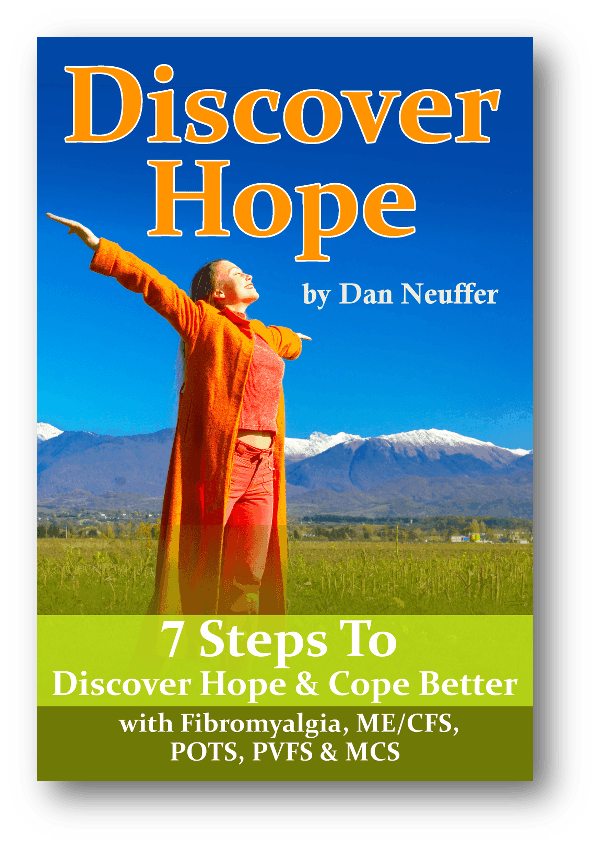
If you would like to learn more about the ANS REWIRE program, check out the 4 free intro lessons or visit the ANS REWIRE website.
Check out some other recent episodes
You can see the full list of episodes HERE.

